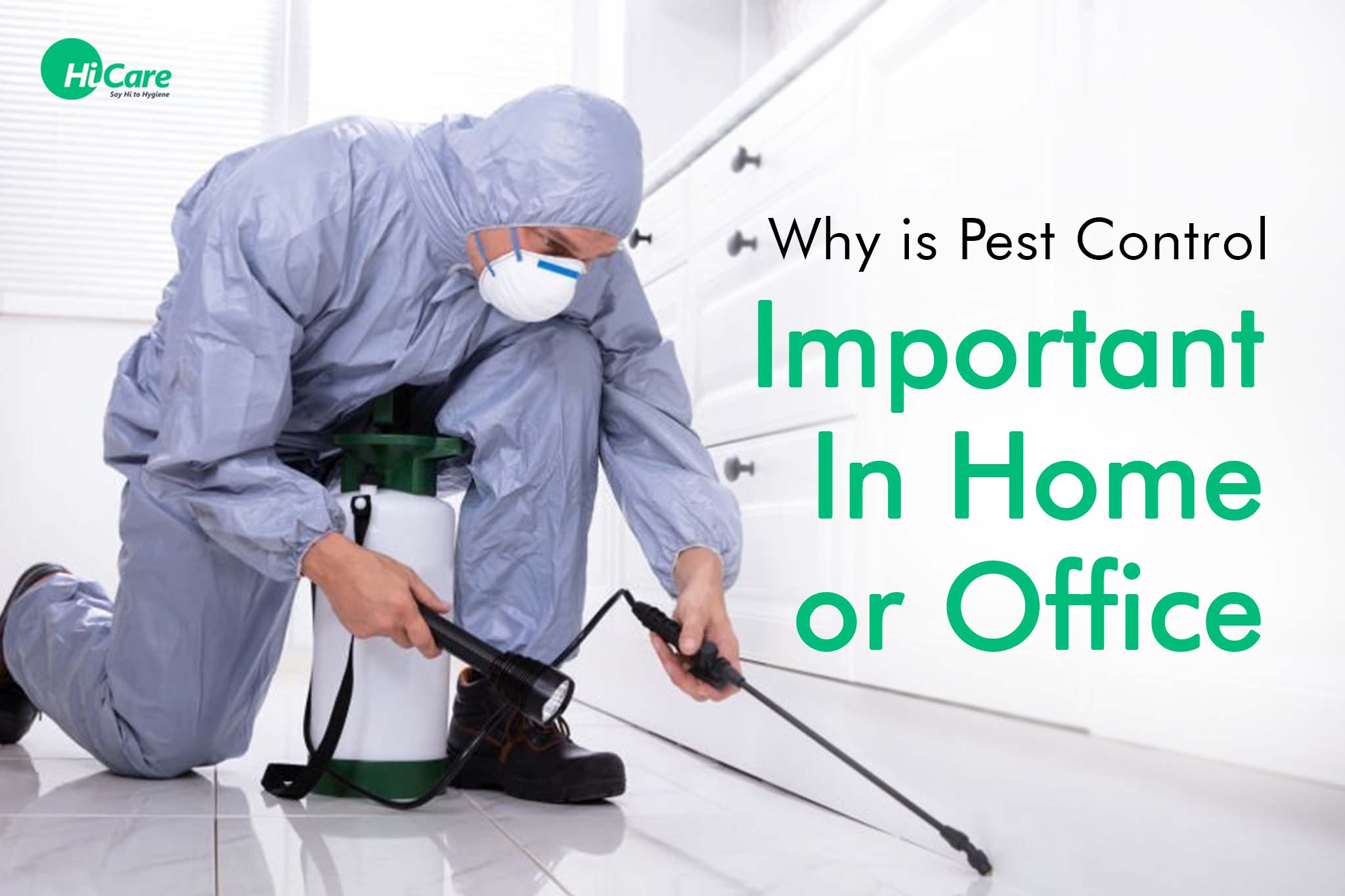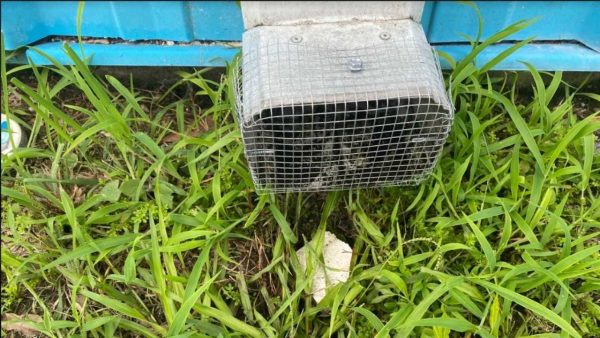Reveal the Significance of Parasite Control in Keeping a Healthy Atmosphere and Treatment Methods

The Duty of Bugs in Communities
Pests, usually seen only as problems, play a multifaceted function in ecosystems that is vital for preserving environmental balance. They contribute considerably to numerous environmental procedures, including pollination, vitamins and mineral cycling, and insect control. As an example, numerous insect varieties, such as and butterflies, are necessary pollinators for a wide variety of plants, which subsequently supports biodiversity and food production.
In addition, insects serve as victim for numerous predators, producing a vital link in food webs. This connection makes certain the survival of various species and assists control populaces within communities (Termite treatment Port Charlotte). Decomposer pests, such as certain beetles and fungi, are crucial in breaking down natural issue, therefore enhancing soil and helping with vitamins and mineral recycling.
On the other hand, while insects can be useful, their overpopulation or invasion into non-native settings might disrupt these ecological features. This intricacy emphasizes the importance of understanding parasite dynamics, as reliable insect management approaches have to take into consideration both their environmental duties and potential effect on human tasks. Stabilizing pest presence while lessening injury is important for preserving the honesty of ecosystems and ensuring farming efficiency.
Wellness Threats Connected With Parasites
The presence of pests in various settings extends beyond their eco-friendly roles, as they likewise present considerable health and wellness dangers to human beings and pets. Several insects, consisting of insects, parasites, and rats, are carriers of diseases that can have major wellness ramifications. Rodents are recognized to transmit hantavirus and leptospirosis, both of which can lead to serious respiratory system and renal issues, respectively.
Bugs such as mosquitoes and ticks are notorious for spreading vector-borne conditions like jungle fever, dengue high temperature, and Lyme disease. These illnesses can cause high morbidity and mortality prices, especially in vulnerable populations. Furthermore, bugs like bedbugs and cockroaches can aggravate allergies and asthma, adding to breathing troubles in individuals, especially those with pre-existing problems.
In addition, the visibility of bugs can result in psychological tension and pain, influencing overall health. Contamination of food and surfaces by insect droppings and remains can lead to foodborne ailments, highlighting the significance of preserving sanitary problems. Comprehending the wellness threats linked with parasites is important in recognizing the need of effective insect monitoring strategies to guard human and animal health.

Advantages of Reliable Parasite Control
Reliable insect control is important for preserving a safe and healthy atmosphere, as it constantly reduces the various risks connected with bug invasions. One of the key advantages of effective pest management is the reduction of wellness risks.
Additionally, reliable insect control safeguards property and structures from damages. Several insects, like best termite pest control termites and carpenter ants, can trigger substantial structural damage that might call for costly repair services. By proactively taking care of these businesses, problems and home owners can safeguard their investments.
Another considerable benefit is the enhancement of general top quality of life. A pest-free setting adds to mental health and minimizes tension linked with problems. Additionally, effective insect control fosters a much safer environment for Your Domain Name family pets and youngsters, making sure that homes continue to be sanctuaries devoid of damaging chemicals and disease-causing microorganisms.
Common Pest Control Strategies

In the world of pest administration, various methods are employed to battle invasions effectively. These methods can be generally categorized right into three main techniques: cultural, mechanical, and chemical controls.
Cultural control includes modifying methods to lower bug recreation, establishment, and survival. This might include crop turning, appropriate sanitation, and environment manipulation, which collectively produce a setting less for pest proliferation.
Mechanical control utilizes physical approaches to get rid of bugs (Termite treatment Port Charlotte). Methods such as vacuum cleaners, catches, and obstacles are generally made use of to straight eliminate bugs from a location. This technique is especially efficient for handling rodents and insects without the use of unsafe chemicals
Chemical control entails the application of chemicals to handle bugs. These compounds can be categorized into pesticides, herbicides, and fungicides, each targeting certain kinds of insects. It is important to use these chemicals judiciously, sticking to security guidelines and regulations to decrease possible damage to non-target varieties and the environment.
Each parasite control method has its constraints and advantages, and typically, an integrated method integrating multiple approaches produces the best lead to maintaining a pest-free setting.
Sustainable Insect Management Practices
Lasting insect administration techniques incorporate a variety of strategies made to reduce ecological effect while properly managing insect populations. These techniques focus on making use of eco-friendly approaches over chemical pesticides, thereby lowering the risk of damage to non-target species, consisting of useful insects, wildlife, and human beings.
Integrated Pest Administration (IPM) is a keystone of sustainable techniques, combining biological, social, mechanical, and chemical methods to manage parasites. For instance, biological control entails presenting natural predators or bloodsuckers to subdue pest populations. Social techniques, such as plant rotation and polyculture, disrupt her explanation pest life process and enhance environment strength.
Mechanical methods, such as traps or barriers, can successfully protect against parasite access without chemical intervention. Furthermore, preserving healthy and balanced ecological communities via correct dirt management, plant health, and biodiversity can naturally reduce insect problems.
Education and understanding are important elements, equipping communities and individuals to recognize pest hazards early and execute safety nets. Termite treatment Port Charlotte. By cultivating an alternative technique that stabilizes insect control with ecological integrity, lasting parasite monitoring techniques not just safeguard frameworks and crops but likewise add to a healthier setting for future generations
Final Thought
:max_bytes(150000):strip_icc()/GettyImages-1406458401-c326873c5dcf400dab30717b9b4e596a.jpg)
Comprehending the health threats connected with parasites is vital in acknowledging the need of efficient pest management methods to secure human and animal health and wellness.
Efficient pest control is necessary for maintaining a healthy and balanced and safe atmosphere, as it consistently alleviates the countless risks associated with bug problems.Integrated Insect Monitoring (IPM) is a cornerstone of lasting techniques, combining biological, social, mechanical, and chemical tactics to handle parasites. By comprehending the function of parasites, identifying connected health threats, and utilizing varied therapy techniques, a sustainable technique to pest monitoring can be achieved. Integrated Parasite Administration (IPM) highlights a holistic method that reduces injury to useful organisms while successfully controlling parasite populaces.